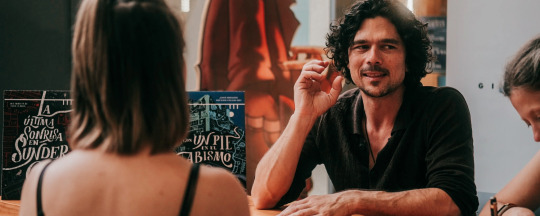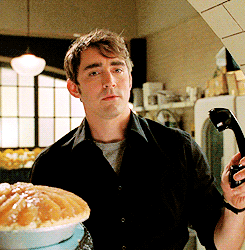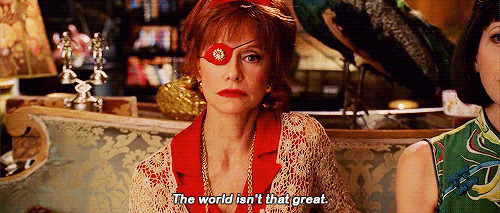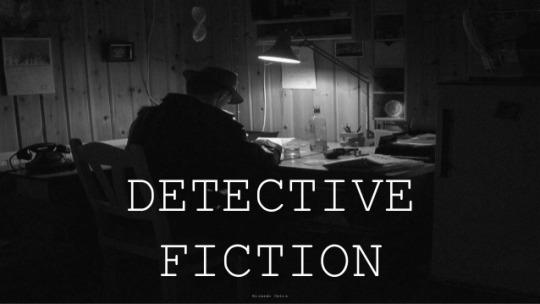#Private investigator solving various genres
Explore tagged Tumblr posts
Text
Why Are Private Investigator Companies So Important?
Private investigation companies are there to guide you in cases of suspicion and fraud. They mainly aim to assist the legal, business and individuals. From uncovering the truths to background checks they do take the lead to solve the unsolved intricate mysteries. So let’s move on and see why private investigation companies turn out to be the real saviour.

Private Investigators Have Great Expertise And Skill
Private investigation companies have the real skill, expertise, and experience in solving various genres of cases. They work hand in hand with intelligence, investigation departments and law enforcement to reach the root of the mystery. They conduct investigations and garner various proofs to uncover the truth that may provoke the situation.

Using The Specialised Type Of Services For The Best
Private investigation companies offer wide arrays of specialised kinds of services customised to the situation. Whether it’s for conducting the surveillance operation or background check, forensic examination private investigators do offer a customised way out to meet the unique objectives and challenges.
Working With Confidentiality And Maintaining Discretion
Confidentiality is the most important keyword when it comes to private investigation. Private investigation companies operate with ultimate professionalism and discretion. They ensure that the sensitive information is protected without breaching confidentiality. Thus, on the whole, the investigation process stays shielded.

Accessing The Right Technology And High-End Resources
Private investigation companies can access wide arrays of resources that include surveillance tools, high-end technologies, and forensic equipment. These resources are the most valuable when it comes to garnering information, or following the leads. Remember that private investigators are well aware of how to apply the information rightfully, besides they try to make sure things follow the right course.

Private Investigations Do Analyse The Cases Impartially
The private investigator follows a strict ethical code and conducts cases impartially. They stay unbiased in any situation and don't get persuaded by anything or anyone.
Final Say
Thus, these are the various good sides of hiring private investigation service providers.
#Private Investigator#Private Investigators#Private Investigator Brisbane#Private Investigator services#Private Investigator analyses#Private investigation companies#investigation process#investigation process stays#Private investigator solving various genres#background check investigator#hiring private investigation
0 notes
Text
Luke Arnold: "There's a lot of me in Fetch, more than I'd probably like to admit".

Luke Arnold is an Australian actor, director and writer who rose to fame in 2014 for playing John Long Silver in the television series Black Sails. Throughout his career he has participated in various theatre and television productions that have allowed him to grow as a person and professional. In 2020, in the midst of the pandemic, he published his first novel, The Last Smile in Sunder City, which arrived in Spain a year later through Gamon Fantasy, the fantasy imprint of Trini Vergara Ediciones.
The work, winner of the BookNest Award for best first novel, places us in a world in which magic has disappeared and the magical creatures that inhabit it are gradually withering away due to the lack of magic. With hints of mystery, fresh, witty humour and light-hearted action, The Last Smile in Sunder City introduces us to Fetch Phillips, a private investigator with a drinking problem but a lot of charisma, who seeks to help any creature who requires his services, whether it be to find a missing person, solve a murder or ensure the safety of a client during an exchange.
Shortly after the publication of The Last Smile in Sunder City, Dead Man in a Ditch, the author's second book, arrived on our shelves as part of The Fetch Phillips Files that began with his previous work. Most recently, April 2023 saw the publication of With One Foot in the Abyss (One Foot in the Fade), which continues Fetch's adventures.
On the occasion of the release of this latest book, Luke Arnold has made a stop in the city of Barcelona, during his literary tour, to tell us a little more about his urban fantasy novels that are conquering readers from different countries. In Cuánta Cultura we have had the opportunity to interview him to bring you a little closer to this author who has arrived on the scene.

Photograph of Luke Aronld with two of his books (La última sonrisa en Sunder City and Con un pie en el abismo) in the Gigamesh bookshop (c) Pol S. Roca
Cuantra Cultura (CC) : In The Last Smile in Sunder City you dedicate the book to your father, who opened the doors to fantasy for you. I'd like you to tell us what fantasy means to you, how important it is.
Luke Arnold : I've always been drawn to fantasy since I was a child and it was this genre that shaped my imagination as a reader. I find that, as a writer and creator, I find the complexity of the real world too overwhelming. That's why I like the freedom that the fantasy genre gives me, a freedom that allows me to explore, also, very complex aspects of a completely invented world, whether social, cultural or political, without having the need to be tied to reality.
C.C : As an actor, if you had to play Fetch Phillips, how would you play him?
L.A : Actually I already do a bit of Fetch Phillips when I record the audiobooks in English and I think this is the only time I'm going to play him.
For anyone playing this character it's important to keep in mind that he has a lot on his mind: about the kind of man he thinks he needs to be, the kind of masculinity he should embody, what it means to do good and whether he's the one to do it… It's true that Fetch tries to project that vision he has (that he wants to have or thinks he should have of himself), but underneath it all he's just a nervous, anxious, repressed, fearful, sad, hopeless, guilty little boy.
However, there is a part of him that does like being the tough guy who gets drunk. It is very important for anyone who has to play this character to keep all this in mind.
C.C : We would like to know what made you take the leap into the world of literature. What was the spark that made you pick up your pen and create such a charismatic character as Fetch?
L.A : When I was a child, it was clear to me that I wanted to write. The first time I played something were stories that I had created. I would put ideas in my head, shape them and then act them out. That's when I started performing things in front of other people.
What tends to happen with these things is that, when you perform something, you tend to get called back for more stuff. They say "hey, we're going to do a play, we're going to do a short film, come and present this act" and as a teenager it's a lot more fun to perform than it is to be in your room alone, writing.
In that sense, life took me down that path, even though I was very clear that I was still a writer. It's been a process of finding myself as a writer again.
I remember, when I was young, I wrote a short story that was a prototype of both Fetch and Sunder City, but it was a very superficial vision. It was more of a typical tough-guy detective going around, investigating. There were some elements that still exist today, like the disappearance of magic, but the character of Fetch was more of a stereotype of what a young kid imagines that idea of the adult to be.
It wasn't until I got to a point in my life where I realised I had enough perspective to look at the vision of masculinity, maturity and growing up that I really started to get excited about writing this. I found myself able to set aside some of my time to dive in and sink my teeth into this world and this story.
"John Long Silver and Fetch Phillips have very different ways of dealing with their personal tragedies and their conception of the world as a dangerous place." - Luke Arnold
C.C : You talk about things you wrote a long time ago like the story that was the germ of Fetch and Sunder City, can you tell us, if you remember, what were the first stories you created?
L.A : I don't remember exactly what I wrote first, but I do know that a lot of the short stories I wrote as a kid were very much inspired by the comics I read. I would write my own comics or create stories based on probably whatever I was reading at the time, things with a lot of action. At that time I was already leaning very much towards fantasy and magical realism, in fact I have some of the comics from primary schools and they're all blatant plagiarisms of the Nightmares books or the X-Patrol comics.

Photo of Luke Arnold after the meeting that took place in the Gigamesh bookshop (c) Pol S. Roca
C.C : Writers tend to pour a part of ourselves into the story and the characters, both consciously and unconsciously. Is there anything of yours (way of thinking, any experience, lived feelings…) in the Fetch books that you have captured?
L.A : There's a lot of me in Fetch, more than I'd probably like to admit. In the end, I think books serve to explore a lot of things, they allow us to introspect and find out about ourselves. In this case, Fetch grapples with the idea of how to be a good person in a society that is broken.
When we conform and follow the herd, we become complicit in certain events that are happening in our society. At the same time, if we go against the tide, if we decide to rebel, the act itself has a cost, a price. And I think that in our world, whatever position we are in, we are all facing these same questions, the personal responsibility we all have for the society and the world we live in.
Many of us right now are in a dichotomy of whether to try to do good things for ourselves and our immediate environment (for our neighbours, family and friends), or whether to try to change the social fabric around us. This obviously leads you to wonder what the people you are rebelling against would do or how what you do will change society. The Sunder City books are a safe way to be able to explore, through Fetch, all these questions before you go out and start kicking things around.
C.C : For Black Sails you played the well-known fictional pirate John Long Silver, a character with a brutal evolution and a great charisma throughout the series. Those of us who have seen the series can't help but imagine Fetch a bit like Silver, although it's true that Fetch is a character with a great sense of guilt and a bit broken, but I'd like to ask you, first, if there's anything you took away from your performance as Silver and, of course, if there's anything of Silver in Fetch.
L.A : In my opinion, I think they are two very different characters, both in their view of the world and their place in it and how that manifests itself in their personalities. In the end, John Long Silver and Fetch Phillips have very different ways of dealing with their personal tragedies and their conception of the world as a dangerous place.
Silver is a very capable character, who knows how to take care of himself because it is clear to him that no one is going to do it for him. That's why he adapts so well and so well. It's also why his story starts out as a fish out of water in Nassau and eventually manages to cope. Not only does he get what he wants, but he also goes all the way to the top.
Fetch, on the other hand, has done terrible things trying to fit in. He did what the people around him told him what to do, what to say, what to think. In that sense I think they are very different from each other.

Photograph of Luke Arnold during the interview he gave me at the Gigamesh bookshop (c) Pol S. Roca
C.C : Who or what is your greatest inspiration when creating (films, theatre, actors, directors, etc.)? Tell me about your greatest idols.
L.A : I find it really hard to choose when I'm asked about top ten, favourites, etc., so I'm going to talk about more recent things. The first books that really caught my attention in that sense were Joe Abercrombie's books.
Lately I've been reading The Ultimate Revenge and The Heroes and I find it extraordinary how he, dealing with such big themes and ideas, is able to keep it all very much rooted in the characters and in the humour. Joe Abercrombie, in fact, I think I've only got a couple of books left to read. And then there's Terry Pratchett also for the same thing, for how he deals with these very complex ideas with humour and how he manages to stick with the characters. These two authors are very much reflected in Sunder City.
Another thing that Abercrombie has in common with Pratchett is that they both don't take themselves too seriously and that's very important when you're trying to deal with very big issues from a social-political point of view.
C.C : In an interview you said that one of your favourite fantasy books is Peter Pan. Everyone knows it from the Disney film, but there are many who have not read J.M. Barrie's work. What do you like most about this story? What would you say about it to encourage people to read it?
L.A : It's going to be difficult to answer this question because the first film I made as an actor was an adaptation of Peter Pan and I haven't read the book since. This was in 2002 and from then on I spent a lot of time working in the specialist department of fencing choreographers. Now what I have in my head, above all, is the film that I made and probably also the Disney adaptation. I think it's a good reminder that I need to pick up the book again and read it.
C.C : Would you be up for writing a pirate novel?
L.A : It would be super fun. The truth is that I don't see myself writing a realistic pirate novel, something from the Golden Age of piracy, a very historical work. It would have to be set in a fantasy world that takes the elements of pirates that we all love so much. What I'm still not clear on is how I would do it, what exactly that would look like.
In the Sunder City books, Fetch hasn't even been near the water yet, so that's a tough one, but my agent occasionally brings up the idea of pirates. I think my publishers would love it, it would certainly be a lot of fun, I just have to find a way to approach it.

Photograph of the three books by Luke Arnold (The Last Smile in Sunder City, Dead Man in a Ditch and One Foot in the Fade) published by Gamon Fantasy (c) Cristina García Trufero
The Fetch Phillips archives are not only urban fantasy noir novels to enjoy and pass the time with, but they also contain a reflection on what it means to grow up, to lose that innocence and see yourself involved in an adult world where the magic that existed in your youth is completely lost. It talks about the responsibilities one has towards oneself, but it also criticises today's society through a narrative with fantastic elements that lead us to ask ourselves certain questions about the world, its evolution and our role in it.
During his visit to Barcelona, in the meeting that took place in the Gigamesh bookshop, Luke Arnold announced that he was working on a fourth book of The Fetch Phillips Archives, so we will be able to enjoy a new adventure of this peculiar private investigator in the future. This is undoubtedly great news for all fans of his work.
From Cuánta Cultura, we will follow this author who has made us enjoy so much with Fetch very closely. We are sure that he will continue to surprise us not only as an actor, but also through his fantasy stories.









Photo credits to Libreria Gigamesh's Facebook official page and Cuanta Cultura
Translated with DeepL Translator
Source: Cuanta Cultura
#black sails#luke arnold#john silver#book signing#book event#the fetch phillips series#cuanta cultura#interview#libreria gigamesh#gamon fantasy
68 notes
·
View notes
Text
Jack Hyde All-Character Tournament: Quarterfinals, Seed 1
Dido Contreras ("Witch Noir")
In 1966, Dido is suffering the backwards medical care of the time as a schizophrenic person when she meets Angel. Angel, a who has been himself unfairly ostracized from his community, convinces Dido that she's not actually psychotic but is a clairvoyant witch like him. She falls in love with the romance of his world as much as she falls in love with Angel himself, and they elope to live on the fringes of society - neither a part of secular nor witch civilization, but not wholly separate from them either. Unfortunately, love doesn't actually heal all, and neither does time. In fact, sometimes they make things worse. As Angel's mental health deteriorates more and more, Dido decides she wants to get better. She tries to convince him to accept their various realities but he refuses, and eventually Dido must make the choice between her true love and her future.
Genre: Horror Fantasy Designation: Main Character Quick Facts: Venezuelan-American, Jewish, butch, classic lit fan
VERSUS
Eddie Alfaro ("Witch Noir")
Eddie Alfaro is a butch lesbian and a type of clairvoyant witch. As a Seer with a natural and nurtured-by-circumstance disposition towards death, Eddie has involuntary premonitions of people's last moments alive in her dreams. She has these premonitions from the victim's point of view, unable to tell the difference between them and herself until she wakes up. Because of this, she has the trauma of a thousand men, as well as having to know the experience of things usually not survived long enough to endure remembrance of. She soothes her pain with alcohol and bodice ripper romance novels, neither of which is very effective. She's also a little sister, and she runs a private investigation business with her sibling Fred. She worries that she's a burden to xem. Through the course of the series, Eddie gets sober, falls in love, finds the bright side of her gift, and solves a string of deeply gruesome serial murders. Not in that order.
Genre: Horror Fantasy Designation: Main Character Quick Facts: Mexican-American, Jewish, head-to-toe rose tattoos
Quarterfinals Poll Masterpost
#jack facts#jack chats#poll#character poll#character bracket#character intro#witch noir#eddie alfaro#dido contreras#all character tournament
14 notes
·
View notes
Text
Badass Cyberpunk Detectives - The Baseline
In the shadowy underbelly of futuristic cityscapes, where neon lights cast an eerie glow on rain-soaked streets, and technology and corruption intertwine, a distinct breed of law enforcers emerges. They are the cyberpunk detectives, the modern-day descendants of film noir's hardboiled private eyes. These characters navigate the labyrinthine complexities of a dystopian world, where the line between human and machine blurs, and the quest for truth takes them to the darkest corners of society. In this essay, we'll delve into the world of these badass cyberpunk detectives, exploring their origins, influences, and the enduring allure of their stories. While the following list provides a glimpse into this captivating subgenre, it is merely the baseline - a starting point for a vast and ever-expanding universe of cyberpunk investigators.
Origins and Film Noir Influences
The roots of cyberpunk detectives can be traced back to the film noir genre of the mid-20th century. Film noir, characterized by its moody cinematography and morally ambiguous characters, laid the groundwork for the gritty, urban landscapes that define the cyberpunk aesthetic. These early noir films often featured hardboiled detectives like Philip Marlowe and Sam Spade, who were tasked with untangling complex mysteries while navigating treacherous terrain.
In the cyberpunk genre, this tradition of the disillusioned detective continues. One prime example is Rick Deckard from "Blade Runner," portrayed by Harrison Ford. Deckard, a retired Blade Runner, embodies the classic noir protagonist thrust into a futuristic world. His journey is a stark exploration of the moral ambiguity and existential questions that permeate the cyberpunk universe.
The Cyberpunk Detective Pantheon
As the cyberpunk genre evolved, it spawned a diverse cast of detectives across various media - from movies and TV shows to anime. These characters exemplify the fusion of technology and detective work, where high-tech gadgets and cyber-enhancements are essential tools for solving crimes.
Major Motoko Kusanagi from "Ghost in the Shell" stands as an iconic figure in this pantheon. Her role as a cyborg cop in a world where the boundaries between humanity and technology are blurred exemplifies the essence of cyberpunk. Motoko's investigations delve into the philosophical questions surrounding identity and consciousness, adding depth to the genre's exploration of the human-machine interface.
Joe Miller from "The Expanse" takes the cyberpunk detective to the far reaches of space. In a society colonizing planets and asteroids, Miller's gritty investigations serve as a lens through which political intrigue and societal disparities are exposed. His character demonstrates the genre's adaptability to different settings while maintaining the core elements of detective work in a high-tech world.
Togusa from "Ghost in the Shell: Stand Alone Complex" (Anime/TV Series): Amidst a team of cyber-enhanced operatives in Section 9, Togusa stands out as the most "analog" member. He relies on old-school investigative techniques, such as using a revolver instead of cybernetic weaponry. Togusa's character represents a juxtaposition of human intuition in a world dominated by technology, making him a fascinating addition to the cyberpunk detective roster.
John Anderton from "Minority Report" (Movie): In the futuristic world of "Minority Report," John Anderton's role as a PreCrime detective is nothing short of extraordinary. He employs cutting-edge technology to prevent crimes before they happen, relying on the visions of precognitive individuals. However, when he becomes a target of the very system he upholds, Anderton's journey takes a dark and thought-provoking turn.
Roger Smith from "The Big O" (Anime): Roger Smith is a suave and enigmatic negotiator and detective in the city of Paradigm. His world is one where giant mechs roam the streets, and enigmatic conspiracies abound. Roger's character captures the essence of cyberpunk as he navigates through the maze of political intrigue and hidden agendas while maintaining his cool demeanor and sharp wit.
Conclusion: The Vast Universe of Cyberpunk Detectives
In closing, the world of badass cyberpunk detectives is a thrilling fusion of film noir's gritty storytelling and the futuristic allure of technological advancements. The characters listed here represent a fraction of the captivating figures that populate this genre. From anime classics like "Ghost in the Shell" to lesser-known gems like "The Expanse," there are many, many others out there, each with their unique stories, challenges, and contributions to the rich tapestry of cyberpunk detective fiction. These detectives continue to evolve and adapt, keeping the genre fresh and exciting, and inviting us to explore the ever-expanding frontiers of a dystopian, high-tech future. So, as you dive into the world of cyberpunk detectives, remember that the baseline is just the beginning of an electrifying journey through this mesmerizing subgenre.
- Raz
14 notes
·
View notes
Text

My Favorite Thing is Monsters, Book 2. By Emil Ferris. Fantagraphics, 2024.
Rating: 4.5/5 stars
Genre: graphic novel
Series: My Favorite Thing is Monsters #2
Summary: The most anticipated graphic novel of 2024, concluding the story of young Karen Reyes, the most inspiring “monster” in contemporary fiction. Set against the tumultuous political backdrop of late ’60s Chicago, My Favorite Thing Is Monsters: Book Two is the eagerly awaited conclusion to one of the most acclaimed graphic novels of the past decade. Presented as the fictional graphic diary of 10-year-old Karen Reyes as she tries to solve the murder of her beloved and enigmatic upstairs neighbor, Anka Silverberg, a holocaust survivor, while the interconnected stories of those around her unfold. In Book Two, dark mysteries past and present continue to abound in the tumultuous and violent Chicago summer of 1968. Young Karen attends the Yippie-organized Festival of Life in Grant Park and finds herself swept up in a police stomping. Privately, she continues to investigate Anka’s recent death and discovers one last cassette tape that sheds light upon Anka's heroic activities in Nazi Germany. She wrestles with her own sexual identity, the death of her mother, and the secrets she suspects her brother Deez of hiding. Ferris’s exhilarating cast of characters experience revelations and epiphanies that both resolve and deepen the mysteries visited upon them earlier. Visually, the story is told in Ferris's inimitable style that breathtakingly and seamlessly combines panel-to-panel storytelling and cartoon montages filled with B-movie horror and pulp monster mag iconography.
***Full review below.***
CONTENT WARNINGS: homophobia, racism, child abuse, gun violence, child death, slaughter of Jews in concentration camps, violence, blood
OVERVIEW: I'm not exaggerating when I say I've been waiting for YEARS for this book. Book 1 is one of my favorite graphic narratives, and I have been eagerly awaiting the next installment since 2017. Thankfully, the wait was worth it. Book 2 is a lovely conclusion to Karen's story, filled all the heart and gorgeous art I loved in Book 1. A solid 4.5 (if not 5) star read.
WRITING/ART: I'm in awe of Ferris' artwork. I love the pen work, the colors, the energy of the lines. I love the way Ferris can move ba k and forth between stylization and realism, and I love the blend of "high art" and pulp art. Every page was an utter delight.
PLOT: The plot of this book concludes the story of Book 1: a young queer girl named Karen investigates the death of her upstairs neighbor while narrating her own life through the lens of B-Movie horror, framing her queerness in terms of monstrosity.
I really love the way Ferris explores things like art, family, courage, and queerness. Karen's life is anything but easy, and getting at the heavy stuff obliquely - the way a kid would - is a very effective way of communicating a lot of big emotions in so few words (though through a lot of drawings).
CHARACTERS: Karen, our narrator and protagonist, is just as delightful in Book 2 as she was in Book 1. I liked that her arc involves figuring out her queer identity, but I also loved the complex relationship she had with her brother, Deeze. Especially as things start heating up around her, Karen navigates the world with a surprising grace and charm, and more than anything, I wanted to see her find her place.
The most memorable moments for me were when Karen was relating the art she sees to various aspects of her life. I love when she goes to the Art Institute with her brother, and I love when she notices little things about her surroundings - Green Men on architecture, details on posters - and creates a vivid inner world where these things come to life in really unique ways.
I do think the ending gets a little chaotic, and it certainly doesn't flow as nicely as the rest of the narrative. But I was so taken by the art that I didn't mind too much.
Deeze, Karen's brother, is fairly complex in that he's a passionate artist who clearly loves his sister; however, he also does a lot of things that would land him in trouble with the law. Karen adores him but also recognizes that what he does is wrong, and I loved that she grappled with loving the best version of people.
Karen's love interest, Shelley, is fairly charming. I liked that she and Karen bonded over their love of monsters and that they could share things with each other - like passion for art and poetry.
Other characters were fine. They came in and out as needed, and I don't really think any of them needed to be more developed than they were. Deeze's friend, "the Brain," was delightfully weird and offered Karen some genuinely good advice. Anka, the murdered neighbor, had a tragic and complex backstory that made the narrarive as a while feel richer.
TL;DR: My Favorite Thing is Monsters Book 2 is a fabulous conclusion to Karen's story. Filled with gorgeous art and heartfelt explorations of queerness and love, this set is one of my favorite graphic narratives of all time and is sure to become a modern classic.
0 notes
Text
WHAT IS THE LOONAVERSE? PART 2 – THE NARRATIVE DEVICES
LOONA is special among K-pop for its immersive storyline. These girls are not just k-pop idols performing a song, they also perform a story and that story is what we call the Loonaverse.
So, what is the Loonaverse? In a few words: The world and story that LOONA inhabits.
Yeah. Duh. But what is it?
Well… it’s complicated.
The Loonaverse is a fictitious story that borrows elements from real science and fantasy to build its world but also uses allegories, metaphors, allusions and other literary devices to tell its story. Our job as spectators (and specifically us theorizers) is to look beyond those devices to understand the message they are trying to send. In this post I’ll attempt to explain the numerous literary devices used to narrate the story of the Loonaverse.

So, these 2 things are LAW:
Each girl has two conflicts: an external one and an internal one.
The LOONAVERSE story is one of fantasy and mystery.
INTERNAL CONFLICT VS EXTRNAL CONFLICT
Or as I like to call it: UNIT vs SOLO
I’ve explained how the girls are trapped in a time loop and how escaping it was their overarching goal. This is the external conflict of the Loonaverse. The progression of this storyline is seen mainly in the Sub-Unit MVs and LOONA MVs but also in some teasers and other videos like Cinema Theory. The conflict is external because: 1) It comes from the outside. 2) The characters not have power against it, at least not at the beginning. 3) The conflict has effect over multiple people.
Also…
Every character has an internal conflict. A personal story. Each girl perceives the world differently and that changes the way they act and interact with each other. It is internal because: 1) It comes from within the person. 2) They themselves may be the cause for the conflict. 3) The conflict has effect on only one person: themselves. This Internal conflict is presented to us in the Solo MVs. Every solo MV is a window to the character’s mind. While the solo MVs are tangentially related to the main external conflict, they mostly focus on the internal conflict of the character.
External and Internal conflicts often mix and interlace each other to create a wider story. We will see how the external conflict fuels the internal conflicts of the girls and how their internal conflicts will shape the way they act towards solving the external conflict.

FANTASY AND MYSTERY
What is fantasy? The genre of fantasy is described as a story based in a world completely separate from our own. It usually features elements or magical/supernatural forces that do not exist on our own world. It is not tied to reality of science.
Wait a minute. You just spent an entire post explaining the science of the Loonaverse. You can’t call it fantasy now. Well yes, yes I can. Since most of the scientific elements I explained are theoretical, unproved in our world but in the world of LOONA they are a reality, a scientific reality. A reality that differs from our own, and thus a fantasy to us. But regardless of that the reason I call the Loonaverse a fantasy is because of the themes it explores.
Fantasy is a broad genre, it is one of the oldest literary genres, being found in old myths. Some of the themes often found in fantasy stories include: tradition vs. change, the individual vs. society, man vs. nature, coming of age, betrayal, epic journeys, etc. All of these themes are very present in the Loonaverse. But I’ll delve into each one as we encounter them.

What is Mystery? The mystery genre is a type of fiction in which a person (usually a detective) solves a crime. The purpose is to solve a puzzle and to create a feeling of resolution with the audience. Some elements of a mystery include: the Crime that needs solving, the use of suspense, use of figures of speech, the detective having inference gaps, the suspects motives are examined in the story, the characters usually get in danger while investigating, plus these:
Red herring. something that misleads or distracts from a relevant or important question and leads the audience to a false answer.
Suspense. Intense feeling that an audience goes through while waiting for the outcome of certain events.
Foreshadowing. A literary device that hints at information that will become relevant later on.
I just though you should know these definitions.
In the Loonaverse, the “crime” is the time loop itself, and the mystery is finding a way to break it. Or so we think. In reality, the “How do we break the loop?” question is solved rather easily. But can we really call this a mystery if the main question is already answered? Yes! It may no be a mystery story for the characters themselves but because BlockBerry uses various mystery genre tropes while telling the story, it is a mystery TO THE AUDIENCE.
That’s right! WE are the detectives!
In a classical mystery, the detective examines all clues, motives, and possible alibis, for each suspect, or in our case, each character. The same way we analyze every MV, every interaction, every possible clue to where and when everything is happening.
The Loonaverse differs from a classic ‘Who done it?’ by establishing that no suspect is actually guilty. The crime IS the loop, but no girl is responsible for it (or so we think). Our job as detectives is not to figure out who is doing this but to explain how and establish an timeline of events that shed a light to what really happened. In that sense, our job resembles more closely a real crime investigation than a mystery novel.

LITERARY DEVICES
There are many literary devices an author can use to tell its story. Too many to cover them all in here, so I’ll focus on the most recurrent ones in the Loonaverse:
Allusion. Referring to a subject matter such as a place, event, or literary work by way of a passing reference.
Archetype. Reference to a concept, a person or an object that has served as a prototype of its kind and is the original idea that has come to be used over and over again.
Faulty Parallelism. the practice placing together similarly structure related phrases, words or clauses but where one fails to follow this parallel structure.
Juxtaposition. The author places a person, concept, place, idea or theme parallel to another
Metaphor. A meaning or identity ascribed to one subject by way of another. One subject is implied to be another so as to draw a comparison between their similarities and shared traits.
Motif. Any element, subject, idea or concept that is constantly present through the entire body of literature.
Symbol. Using an object or action that means something more than its literal meaning, they contain several layers of meaning, often concealed at first sight.
Genre. Classification of a literary work by its form, content, and style.
Some other literary devices worthy of your private investigation are: Negative Capability, Point of View, Doppelgänger, Flashback, Caesura, Stream of Consciousness, Periodic Structure, THEME, Analogy.

About Genre:
Genres are important because they give a story structure. They help an author tell the story in a way that makes it simple for the audience to understand what kind of story is being told. The classic genres of literature are Poetry, Drama and Prose. Some scholars include Fiction and Non-fiction.
In film there are a variety of accepted genres: Comedy, Tragedy, Horror, Action, Fantasy, Drama, Historical, etc. Plus a bunch of subgenres like Contemporary Fantasy, Spy Film, Slapstick Comedy, Psychological Thriller, etc. What defines a genre is the use of similar techniques and tropes like color, editing, themes, character archetypes, etc.
I point this out because the Loonaverse uses many genres to tell its story. Sure, the main story is a fantasy/mystery but every MV or Teaser has its own genre (especially the solo MVs). So, when I point out later that Kiss Later is a romantic comedy or that One & Only is a gothic melodrama, this is what I mean.

TLDR:
The Loonaverse is the world and story that LOONA inhabits. It borrows form real life science and fantasy elements to better tell its story. Each girl has an external conflict (escaping the loop) and an internal conflict (portrayed in the solo MVs). Both conflicts interlace to tell the story. The Loonaverse is a story of Fantasy because it takes place in a different world from ours and it is a Mystery because it is told using various mystery tropes. The story uses multiple literary and visual devices to tell it’s story and fuel the mystery.

REMEMBER: This is all my interpretation. My way of comprehending and analyzing the story. You don’t have to agree with everything. I encourage you to form your own theories. Remember: every theory is correct.
After all that you may be wondering what the story even is. And we’ll finally be getting to that. While I have my own interpretation of the timeline, themes and who did what. I think it’s more fun to slowly explore every brick instead of just summarizing it in one (incredibly long) post. I’ll do that much, much, much later. The journey will be just as interesting as the destination. I hope you’re in for the ride.
Let’s get to the real deal: The MVs. I’m going in chronological order so let’s start with girl No. 1!

Next: The bright pink bunny of LOONA: HeeJin’s ViViD.
#yeah i know its been months#life's tough kids give me a break#loona#loonaverse#loona theory#loonatism#heejin#hyunjin#haseul#yeojin#vivi#kim lip#jinsoul#choerry#yves#chuu#go won#olivia hye
86 notes
·
View notes
Text
you know. hot take I guess but the way people on here (and often elsewhere) talk about true crime youtubers really annoys me. because its taken as being so incredibly black and white– like if you talk about true crime as a youtuber you’re either automatically disrespectful and exploitative or you’re perfectly fine no matter what and there’s nothing in between, when realistically it’s just honestly stupid to think there’s nothing in between. Like the internet is acting like media covering the stories of criminal cases is a new thing that’s popped up just because of youtube influencers when that’s just. nonsensical for a thousand reasons. and either way, the fact that it’s existed in various forms Forever aside, the morality of it is absolutely dependent on how it’s presented and for what purpose. Using true crime solely as a way to get views and monetization and downplaying real peoples’ lives and deaths to come off like a fictional story you can make jokes and other insensitive comments about? No shit that’s a problem, a similar one to why we generally hate paparazzi and yellow journalism. But it should be obvious to anyone who’s actually looked at true crime youtube as a whole that there’s just as many channels who, yes, may have an interest in the subject (again, which is a phenomenon that’s existed forever and isn’t inherently bad– that’s where we get detectives and forensic anthropologists and so on to begin with) but also present the content of a case with the intention of reporting, educating, and often giving attention to a case that needs more attention, more eyes, more leads, etc– to get solved and, subsequently, get justice. And say that’s bullshit all you want, but I can literally name off the top of my head a few youtubers who have legitimately helped provide new leads to cold cases and spoken/worked directly with the victims’ families, their private investigators, and so on, to make sure their videos have the right links and resources and such to potentially create real change. And to disregard those people who run channels that actively try to help with these cases, or at the very least give attention to them when they’d otherwise be covered up or forgotten– just feels ignorant and like you’re very desperate to label an entire genre of content as malicious.
#kibumblabs#i can list channels I recommend who fall under the category of genuine helpfulness/awareness but I’m not going to right now cause I’m busy#just had to say this cause it bothers me
2 notes
·
View notes
Note
ahh ok ok, it's good !! i'm only halfway thru but mAN, i'm hooked HAHA, and abt the type, mmm i don't really have a preference tbh, i just take a look at the blurb and if it's interesting to me, then i send a message to my mom n she decided whether to buy it or not
as for recs, i've only gotten into reading recently, but i have a few that i've been wanting to read
- agatha christie seems to be pretty popular, and i think she writes on horror, so i'll look into that
- there's also this guy, anthony horowitz, and i'm very interested in reading a book of his, the word is murder (it's out of stock on our local bookstore, so i'm just waiting on it)
- one of us is lying and one of us is next is popular with my friends and classmates, so i'm interested in it as well
but do you have any book recs? i'd like to get more into it, but i haven't been able to find a lot of good ones ; i dont mind the genre, i just get at what seems interesting to me, so feel free to drop your favorites :D
HMMMM IMMA CHECK THAT ONE OUT :DD
ok so what you got sounds good I'll give you some basic recs because I want to explore the genre a bit more myself lol (my sister also really wants to read One of us is Lying lol)
Classics (not old but like... famous):
- an Inspector Calls - a play that's quite famous, it's a script so it's all dialogue and the story is revealed through an interrogation it's a classic for a reason :) - An inspector comes to the house of a rich family in the (oh dear) like mid 1800s? Anyway he claims that they are all guilty of driving a working class woman to suicide and the whole story is slowly revealed it's so GOOD
- Oedipus Rex - ok this is an old classic but :)))) what can I say - it's another play and it's good! Technically it's a tragedy but the plot of the tragedy is Oedipus trying to solve a mystery - chances are you know the ending but that's the point, knowing the ending creates tension as he tries to figure it out and you wonder when the ball is going to drop
- Sherlock Holmes - I... I haven't actually read these but one of my best friends has and she KEEPS bugging me to read them so it's on the list because it's a classic and also my bestie likes them
- Dr Jekyll and Mr Hyde - Pretty short! And so so good! You probably recognise the story and it has it's fame for a reason... t's written from the POV of this Judge? I think? I can't remember his career, anyway he becomes involved in these murders and he decides to find out who's doing it and then track the perpetrator down and it's also sci-fi and psychological I believe anyway definite recommendation
Lower level (so like ages 11 - 15? I mean that's the age I was when I read them so):
- The Mysterious Benedict Society series - honestly? I want to reread these because a television adaption is coming out and I'm mad about some of the cuts they made - it's about a group of children recruited to stop someone from brainwashing the world
- the Lady Grace mysteries - definitely around the 11/12 age when I read these so they're quite an easy read but what can I say I still like them and easy reads are good and fun - it's set in the late 1500s and the main character is Grace, goddaughter to Queen Elizabeth the first, and she becomes a private detective for the Queen for various murders happening around court while outwitting the official (male) detective who thinks that her observations are worth pretty much nothing - she also has to keep it a secret from the other Maids of Honour (like ladies in waiting but... nobles)
- Orphan Monster Spy - ok I loved this when I read it at... 13/14/15? Anyway it's about a Jewish girl in WW2 who goes undercover at a school for nazi's children to gather information it is very good
- The murder most unladylike series - OK this I read at 10/11/12 as well but just because books are for younger audiences doesn't mean they aren't gripping and they're often more creative! My sister is reading this atm and she loves it ehe - it's two girls at a boarding school that start solving mysteries together
Higher Level (so like... 15/16/17? When I read or have been recommended and all that jazz):
- Oryx and Crake - This is written by Margaret Atwood which means it's good. The woman is a legend! Handmaid's Tale COULD be considered thriller or smth like it's sci-fi but like... cmon so that's another rec by her. My English teacher and my mum keep recommending me this but I haven't started it yet... general consensus is it's good though!
- Jane Harper - She's an author who's mysteries are apparently pretty good? I have one and they all seem to be popular sooooo a recommendation :)
- The Declaration + sequels - These are written by Gemma Malley and ALL I CAN REMEMBER ABOUT HOW GOOD THEY ARE is that when I was taking my GCSE mocks (I was 15 half of us were 16) we had to do revision in an exam hall and um anyway I read this book and the Resistance instead and did not do any revision I was hooked - not really a mystery or crime technically I don't think but definitely that vibe - Basically it's a future world where children just aren't a thing? The government has designed drugs for longevity and kids born outside of the law become 'surplus' and are all housed together but this girl meets a boy from outside (I cannot for the life of me remember if they get together or not) and they escape and go to investigate the government and where these drugs are coming from
I'll add more if I read them... IDEA! This list will have a tag (#wid's book recs! and #wid's mystery recs!) so I'll add recs to it when I get them so it'll be constantly evolving and I'll do the same for other genres at some point! I had a few more that I wanted to add but I forgot and the cat is being clingy
5 notes
·
View notes
Text
Body Conscious
Summary: Jaehyun had never been worried about the staff seeing him in the waiting rooms change his clothes – they normally had better things to do. But when he found you staring at him, it started up a whole series of incidents that you both needed to work through.
Pairing: Jung Jaehyun x reader
Genre: fluff
A/N: this piece is written in more of a static manner? It’s covering a lot of time so I broke it up to emphasise that. I hope you like it all the same!
Word count: 2176

He frowned when he found you staring at him, pausing at taking off his blazer after loosening his tie. Whilst Jaehyun wasn’t fazed changing in front of others given his line of work as an idol, it wasn’t every day that within the bustling dressing room he would find someone watching him do exactly just that.
Your gaze connected with his and Jaehyun quirked an eyebrow at you questioningly, watching as your cheeks instantly reddened. You whipped around, and he lurched in his spot across the room as you blindly banged into a clothing rack, bowing repeatedly at other staff before you raced out of the room.
A week later, the room wasn’t as busy and Jaehyun noticed you before going to remove his clothes. He watched you organise the makeup carts quietly, wondering why he was waiting for you to notice he was in the room. It wasn’t as if he needed your permission to do as he pleased, though he wanted to make sure you knew he was in there. Eventually, your focus flitted up to the wall of mirrors, catching his stare through the reflection. He smiled meekly and gestured to changing, allowing you the chance to turn your attention elsewhere. You frowned, not understanding his silent suggestion and before he could stop himself, he had already started removing his shirt.
“Ah, Minji, do you need a hand in the other waiting room? I uh think I’m done in here!” you cried, dashing towards the organiser as Jaehyun peered out the top of his predicament, sighing loudly.

He decided he wouldn’t alert you this time. After all, he didn’t want you getting scolded for changing tasks in the waiting room, and Jaehyun could be quick about removing his stage outfits. He had been doing so for so many years already. All he needed to do was unbutton his shirt whilst you were busy helping another staff member and there would be no issue whatsoever. He set about doing just that until Johnny approached him.
“Where’s the race?” he asked with a chuckle and Jaehyun tried to smile, ignoring his urge to look around the room and continued to unbutton the top. Johnny gasped and Jaehyun blinked, panic settling the longer his friend interrupted him. “Did you know you have a bruise?”
“Where?”
“There,” Johnny poked at the side of his ribs and shook his head. “Does it not hurt?”
“Ah, I don���t know,” Jaehyun replied an octave higher; now aware he had the attention of other people in the room. He reached out for his tee but Johnny moved closer, perplexed with Jaehyun’s reaction.
“It looks painful. Minji-noona, don’t you think Jaehyun should get this looked at? It’s not just a regular bruise,” Johnny inquired and Jaehyun was entirely flustered. He looked around the room rapidly, his gaze falling short on you. It widened when he realised you could see his upper body from your position in the room and shoved the team of investigators off, snatching his clothing off the chair beside him and departed the room with haste.

Jaehyun was now too conscious about his body in front of you. It was a weird feeling; he had shown himself off to thousands of fans, but having you see him in such proximity left him feeling jittery. On one hand, he knew you had probably seen more skin in this business than you wanted to and perhaps he was making a bigger deal than needed. But you had started it first by reacting as badly as you initially did. It had rubbed onto him and now he was the one causing scenes. It wasn’t very practical, nor was his inner voice that hoped you actually liked what you saw and wasn’t repulsed by him instead.
And so when Jaehyun saw you in the hallway of the office, he didn’t hesitate to grab you and drag you into the closest private studio room. You squeaked. “Jaehyun, what are you doing?!”
“We have a problem.”
You nodded furtively. “Yes, we do if anyone catches us alone together. Do you want a rumour to start up about us?!”
He waved you off dismissively, attempting to calm you down so he could approach the actual situation at hand. “Y/N, we have bigger issues than that.”
“Like what?”
“You keep freaking out when I go to change. Don’t you think that’s odd, especially when it’s a normal occurrence in a dressing room?”
“You were the one who made a big deal out of it like I was some pervert. I was trying to figure out what you had stuck in your hair that day! I realised it was confetti that kept catching the light but by the time I understood what it was, you were looking at me as if I was purposely about to watch you change. I’m definitely not the type to do such a thing!”
He coughed awkwardly; at least he knew how this had begun to be a problem. Jaehyun eyed you warily still. “What about the second time?”
“I was still feeling uncomfortable by your first reaction towards me that I wanted to leave so you could get dressed in peace. You’re really making it hard for me to work with you, you know? And the other day with Johnny?! They all think you’re being a baby about your body now.”
Jaehyun groaned. “I know and that’s why we need to solve the issue.”
“Which is?”
“You watching me change,” he concluded and you blinked once before shifting towards the door. He blocked your exit and you stared at him exasperatedly.
“Did you not hear a single word I just said? I wasn’t watching you change!”
“So you should now,” Jaehyun told you and you spluttered in response, soon thumping at your chest from the breath you had choked on. He cringed and went to reach out to assist you but you held out a warning hand instead.
“You’ve gone mad!”
“No, just hear me out, Y/N. If you watch me change, then we can both get accustomed to it and it’ll go back to being no big deal again.”
“I’ve heard it all now,” you told him, glancing around the room and then thumped on him with your arm. “Stop talking crazy talk! I don’t need to do anything! Is this how idols try pick up lines on people now? Hey, haven’t seen my body on stage yet? Let me undress for you!”
“You’re misinterpreting my suggestion,” he mumbled, blushing all the same. In his head, it had made sense. Once it was out loud though, well, he could see why you reacted as you did. Lowering his head, he sighed. “Don’t worry about it, pretend you never heard it.”
You let out a huff of air and nodded, leaving the practice room and Jaehyun behind to ponder how to deal with this now.

Jaehyun realised he had only made the issue worse three days later when you were both in yet another waiting room together. He had taken to using the curtained off space to change and felt it was all rather anti-climatic. Except now you were avoiding him like the plague – supposedly with good reason too. However, it made helping him get ready to perform more problematic. You stood there holding the mic pack and various cords to hook up to his body, and normally a staff member would help by either running them up the back under his shirt or fishing them out the bottom for him. And that staff member was off sick today.
“Y/N, what are you just standing there for, help Jaehyun! We don’t have time to stand around doing nothing when we have this many members to prepare.”
He felt the tremble of your hands, the hesitance as you slipped under his shirt. It felt too long with your hands under there and his skin suddenly felt hot.
Jaehyun shifted and reached for the cord himself, smiling awkwardly at you. “I’ve got it, Y/N.”
“Right, thanks,” you murmured, heading off to continue with your other tasks.
The very next day it was you who sought him out, pulling him into the same private room as before. You nodded determinedly at him. “So we have a problem.”
“You told me my idea was stupid.”
“I almost went to agree with it, you know.” You groaned with the admission and rubbed at your face. “But then I realised we just need to have a safe word or a cue. You could say something and we would both know that means you want me to not pay any attention in your area. And I could say the same thing if I’m feeling uncomfortable in any way. That way, we’ll stop having these mishaps with each other, how about that?”
Jaehyun was relieved, nodding his head in agreement. “Why didn’t we think of this in the first place?”

With the safe word in place, there were no further mishaps. In fact, for the next three months, the waiting room became a stress-free environment where you both were concerned. The boundary had been set and soon there wasn’t even a need for the safe word anymore.
Jaehyun realised he missed your reactions since you now had limited interaction with one another. It was a strange feeling, to want to bring your attention back to him when he was so readily trying to avoid it in the past. For a couple of weeks, he was in turmoil over the realisation, inwardly scolding himself for purposely wanting to create drama where there was no need for any. Yet he couldn’t shake the feeling, nor did he accept that your eyes barely sought his out. Somewhere along the line, the previous issue had created some kind of interest in you for him. He wanted to make sure that what he was feeling actually had a legitimate reason too. And so when he knew that it was only you in the dressing room packing up items whilst everyone else was eating in the other room, Jaehyun slipped in, sighing heavily to get your attention.
You glanced up, blinking at his appearance. “Is everything alright?”
“No, I got soy sauce on this shirt. It’s a sponsored one too; do you think we can get it out before it stains?”
You gasped noisily, shifting immediately to his side and inspecting the stain. You then took Jaehyun by the arm over to the basin in the corner, angling him towards the sink and turning on the cold water. But you couldn’t get him close enough with the shirt on. Glancing up at Jaehyun, you gestured hurriedly for him to take it off and he did so, frustrated that all you did was focus on the garment. He watched you use the cold water to make sure the sauce had no way to settle into the shirt and then dashed over to the kit of supplies in the corner, returning with a bottle of stain remover. You stopped, realising Jaehyun was standing there shirtless. You blinked, failing not to take in his upper body before chewing your lip and gesturing to the rack of clothes. “Do you want to catch a cold? Put something else on.”
“I wanted to catch you,” Jaehyun admitted, reaching for a hoodie and slipping it over his head. You were already back to work on the shirt, yet you paused at his statement, turning to look up at him again. Jaehyun pointed to the top you were working on. “It’s mine, it’s not sponsored.”
“You faked this?”
“Well, not entirely, I did spill the sauce by accident,” he told you, rubbing the back of his head. “Because I was trying to think of a way to catch your attention.”
“By taking your clothes off? What is your issue with me seeing your body?!”
Jaehyun chuckled and shrugged. “Initially, I didn’t want you to but then when there was no reason for you to see it, I kind of felt frustrated. Stupid right?”
“Very,” you told him, though a small smile played on your lips. “I can’t believe an idol wanted me to see him so openly without a shirt on.”
“Hah, yeah. I seem to keep doing silly things in front of you.”
You glanced away from the shirt you had scrubbed clean and then smirked. “I think we have a problem again, Jaehyun.”
“How do we solve it this time?” he asked with a dejected sigh and you moved over to his side, still grinning. It confused him.
“Your body has always been an issue for me to see, intentionally or not. I don’t think it’ll go away.”
“Oh,” he breathed, reaching out for the shirt you held out to him and then stepped closer to you. “So you want to see more of it?”
“Or just more of you. If you want to get my attention in the way you’re thinking of, try to keep your clothes on so I can actually focus on you and not what’s hidden underneath.”
_________________
All rights reserved © prettywordsyouleft
[NCT Masterlist] | [Main Masterlist] | [Request Guidelines]
#jung jaehyun#jaehyun#nct#kwritersworldnet#nct imagines#nct scenarios#nct fiction#nct fanfic#nct fluff#jaehyun imagines#jaehyun scenarios#jaehyun fiction#jaehyun fanfic#jaehyun fluff#kpop imagines#kpop scenarios#kpop fanfic#kpop fiction#kpop fluff#prettywordsyouleft writes#jung jaehyun imagines#jung jaehyun scenarios#jung jaehyun fiction#jung jaehyun fluff
535 notes
·
View notes
Text
Okay, so I know most everyone is upset about what’s going on with MID, and believe me, I completely understand! We’re all waiting to play something new and are itching for a new mystery. That’s why I decided I’d recommend other games that gave me serious Nancy Drew vibes while playing them. Hopefully I can give some within the Clue Crew community a chance to try something new without feeling the tension of waiting for MID! All of the games mentioned can be found on Steam. No spoilers under the cut, it may just be a long read.
The Painscreek Killings

Website Synopsis: As Janet, a young and upcoming journalist, you have been asked by your editor to investigate the mysterious abandonment of a once lively town. Based on the information released by the media about the deaths of the townspeople, you set foot into the town thinking you would find an interesting story to publish, only to uncover secrets that were meant to stay hidden forever.
This is by-far one of my favorite games to play! There is no hand holding whatsoever as you are let loose in a semi-open environment, so you are free to go your own pace and choose which secrets you want to uncover first. This style of gameplay makes finding clues and progressing all the more satisfying! The beautiful setting and the subtle things that happen throughout help you stay alert while you play this fairly calm game. The mystery you slowly unravel is fantastic and helps you stay invested to keep going until it’s solved.
The cons: While the graphics may be great, not all computers or laptops might be able to handle everything, causing it to lag. It’s not unplayable, but if you hate any kind of lag, make sure to check if your hardware can handle it first. The game can also be very long if you want to find every secret (my first playthrough lasted about 11 hours).
Gray Matter

Steam Synopsis: After a tragic accident, neurobiologist Dr. David Styles has become a recluse, rarely leaving his home, the Dread Hill House. One day, Samantha Everett, a street magician, appears at Dr. Style's doorstep just as he is seeking a new assistant.
This was a surprising little gem! Made by well-known video game designer and author Jane Jenson, creator of the Gabriel Knight adventure series, you play as both Sam and Dr. Styles as you try to figure out who, or what, is causing strange accidents that are happening around Oxford. This game implements an interesting mechanic as you use Sam’s expertise in magic to help progress forward. The music, art, story, and mechanics give this game it’s own style, making it stand out in the point-and-click adventure genre.
The cons: Though not bad, some of the 3D graphics and gameplay can lead to the game feeling a bit sluggish at times, especially when getting from point A to B. The voice acting can be a bit cheesy as well, but it is not bad by any means. Towards the final chapters of the game, there are various segments that can be pretty tedious, and sometimes feel like they are unnecessary.
Agatha Christie - The ABC Murders

Steam Synopsis: The ABC Murders is an adventure and investigation game adapted from the classic Agatha Christie novel. You are the famous private detective Hercule Poirot and, once again, you find yourself up against a mysterious serial killer who goes by the name of "ABC".
Since all of us are probably mystery nuts, most of you have likely heard of Agatha Christie or Hercule Poirot before. Or you may have already read the book this game is based on (like myself). If you’re in the mood to play as another famous detective, this game may be for you! The cartoonish style gives this point-and-click adventure game charm as you follow the story of The ABC Murders. The puzzles can be quite enjoyable and the unique mechanics, though simple, only add to the charm.
The cons: This game is pretty short (the game took me barely 3 hours to finish the first time I played through), which would not be bad if you are looking for a quick fix in mystery. This game also tends to hold your hand more than other games within the point-and-click adventure genre.
Art of Murder (Games 1-3)

I’m going to be recommending 3 of the 5 games in this series, as I haven’t played the final two.
The Art of Murder series has you play as a young FBI agent named Nicole Bonnet. The first three games in the series, FBI Confidential, Hunt for the Puppeteer, and Cards of Destiny have you on the hunt around the world as you stop various serial killers, all with their own unique modus operandi. Being an older title, I actually grew up with these games alongside Nancy Drew. Though being a point-and-click adventure, the puzzles and atmosphere are effective in making you feel like you need to hustle before the killer finds their next victim.
The cons: The games are old, so the graphics and voice acting may not be the best compared to today’s standards (I love Nicole, but her tone can be way off sometimes). Some of the puzzles in these games can fall into “How in the world was I supposed to figure that out on my own?” territory, leading them to be quite tedious.
Hopefully I caught the eye of those needing a new mystery to solve while we wait for MID, and if anyone has any other recommendations, please feel free to add them! Happy sleuthing!
#Nancy Drew#The Painscreek Killings#Gray Matter#Agatha Christie - The ABC Murders#Art of Murder#Clue Crew
29 notes
·
View notes
Text
Pushing Daisies
Hello again everyone! It’s time for another in-depth analysis of a show that I’ve watched. This time I’ve picked a show that I have recently rediscovered - question: do you guys like pies and corpses...?

[The facts were these]
PREMISE
In the fall of 2007, a quirky little show known as Pushing Daisies premiered on ABC. Taking inspiration from all things kitsch and Wes Anderson, the story centered around Ned (no, not THAT Ned), a self taught baker specializing in pies who has the unique ability to touch dead beings and bring them back to life. As with many superheroes, his powers did not come without restriction: once touched, should Ned touch the “undeaded” once more, they would become dead permanently. Also, once Ned touches the dead, they exist consequence free for only 60 seconds before something living in close proximity has to die to balance out the cosmic scales.
A bundle of anxiety and intimacy issues on a good day, Ned uses his special skills to moonlight as a part time private investigator to help full time investigator Emerson Cod solve various murder cases and collect reward money. One day, it turns out that the case they have to solve is that of Ned’s childhood sweetheart, one Charlotte “Chuck” Charles. Ned takes a risk and resurrects her beyond the 60 second rule, meaning that someone else has to take her place in the great beyond.
Together with Ned’s waitress (and unrequited admirer), the quartet must solve mysteries, keep the secret of Chuck being alive again from her eccentric aunts and come face to face with all of their emotional issues.
Sadly, the show was cancelled before it ever took off, but more on that later on.
CAST & CHARACTERS

Lee Pace as Ned - the man with the magic touch, he owns a restaurant called “The Pie Hole”, where he makes... well, pies; what did you expect? Ned discovered his gift/curse at a young age when he resurrected his dog after being run over and his mother after she suffered a brain aneurysm. He also discovered that his powers did not come without consequence, as the cost of bringing his mother back to life was Chuck’s father dying. Abandoned at boarding school by his father, Ned grew up and opened his restaurant where he also helps Emerson Cod solve many murder mysteries for the rewards of justice and money. Due to his powers and abandonment issues, Ned has trouble opening up to anyone and carries around a great deal of anxiety. Lee Pace was previously unknown before the show, but he rightfully gained much recognition afterwards, going on to make a few bad movies before getting roles in the Hobbit and MCU franchises.

Anna Friel as Charlotte “Chuck” Charles - Ned’s childhood sweetheart and neighbor, Chuck grew up with her father, having believed that her mother died giving birth to her. Once the universe decided to claim her father as payment for Ned’s mother being brought back to life, she was raised by her shut-in aunts and never allowed herself to travel beyond the gates of her house for their sake. Deciding to break that rule, she was killed when she went on a cruise, after which she was revived the socially anxious Pie Maker Jesus. Chuck is a very optimistic and sincere girl who enthusiastically takes to solving cases. She carries around a bit of existential depression in her, what with being previously dead and all, but she cares for her family and friends very deeply. She can never touch her boyfriend again, but she’s very happy to just generally be around him. Anna Friel had a bit of a generic career before the show, but all that changed once it was cancelled. She was nominated for a Golden Globe for her work here.

Chi McBride as Emerson Cod - a jaded private investigator who believes in nothing but the almighty dollar, Emerson frequently contracts Ned’s skill to revive murder victims, ask them how they died and who killed them, solve their cases and collect easy reward money. He had a romance with one of his PI targets a few years before the series began, resulting in daughter who is now missing. He is the author of a children’s pop-up book, hoping to get it published so that his daughter will use it and come find him instead of the other way around. He does not like the complications that come with having Chuck around nor does he care for Ned’s frequent ethical dilemmas or Olive’s stubborn charms; but he does appreciate all of them in his own way. Chi McBride previously starred in Boston Public and went on to star in short lived shows such as Human Target and Golden Boy before getting a recurring role on the new Hawaii Five-O

Kristin Chenoweth as Olive Snook - a former jockey turned waitress, Olive works at the Pie Hole, lives next door to her boss and carries a very strong, yet unrequited love for our Ned. She does not take kindly to Chuck suddenly appearing and gaining the affection she had worked so hard without reward. She believes that Chuck faked her death and is locked out of the loop as to what is really going on. After some snooping around of her own, she makes firm friendships with Chuck’s aunts, Chuck herself (they even become roommates) and even Emerson. She also learns to accept that Ned will never see her the way he sees the dead girl and tries to move on. Kristin was a very well established Broadway actress before the show and won an Emmy for her role in the show’s second season. She went on to do more plays and more TV shows, with a few guest starring roles here and there.

Swoosie Kurtz as Lily Charles - a cynical and sarcastic agoraphobe, Lily was once part of a synchronized swimming duo called the Darling Mermaid Darlings with her sister Vivian. They toured all over the world before settling down to raise Chuck once her father died. She’s fond of martinis, guns and does not take kindly to strangers... or anyone for that matter. She also happens to be carrying a few secrets of her own as Olive find out and is devastated when she finds out Chuck dies at the beginning of the show. Ms Kurtz is a very acclaimed actress, having an Emmy and two Tonys to her name. She went on to star as Joyce Flynn on Mike & Molly after the show.

Ellen Greene as Vivian Charles - Chuck’s other agoraphobic aunt, Vivian was the other half of the Darling Mermaid Darlings. She’s much more compassionate and delicate than her older sister, but is lost and sad after her niece’s death. Wanting to explore the world in all senses of the phrase beyond her house, she finds herself frequently held back by Lily’s stubbornness... but is that all that’s keeping her back. She was also once engaged to Chuck’s father. Ms Greene is renowned for her role in Little Shop of Horrors (both musical and film versions).
STRUCTURE, DEVELOPMENT & WRITING
Described as a “forensic fairytale”, Pushing Daisies drew inspiration from all the 20′s right through to the 50′s. For those who haven’t seen the show, have you ever watched the Wes Anderson segment in the Family Guy episode Three Directors? You’d be surprised at how similar the setting is, even though it’s a parody. You could even say it has a very Tim Burton feel to it, and who doesn’t love Tim Burton?
Combining the murder mystery and fantasy show genres was not new at all. Medium started up 2 years before PD; whilst Missing & Tru Calling debuted the year before that. If PD was going to be different, it needed another element to make it a success, critically at least. It found that piece by embracing full on quirkiness and adding equal amounts of emotional gratification instead of the darker themes of the aforementioned predecessors, it could carve a niche for itself in the late 00′s television market. PD didn’t serve up thumping adrenaline in any of Ned’s pies, but it didn’t need to: there were other shows who could do that better. It aimed for something else entirely, making the crime element a portion of itself rather than the whole focus.
In this sense, the show followed through with the more intellectual sarcasm starting to appear more frequently at the time (thank you Tina Fey), but tempered it with sincerity. Characters were allowed to be jaded or anxious, but never at the expense of the lighthearted atmosphere. The show’s scripts were also tightly consistent with character development, often pairing very unlikely characters for humorous or heartwarming moments. Characters also took on very familiar tropes in a very unique way - instead of endlessly pining for the pie maker who could never be hers, Olive attempted many a times to get over him, finally accepting that friends instead of lovers was better than slicing Ned out of her life completely. Emerson was a hard-boiled private eye, who wanted his AWOL daughter to find him instead of the other way around.
As with many shows airing on ABC at the time, PD carried a family secret/scandal that affected almost every character, forcing them to go to great lengths to keep it buried once the truth had been discovered. It fit in well with the general theme as opposed to the other examples who used it for shock value or to prolong viewership.
Sadly, the pie maker and his friends weren’t destined to remain on TV for long. The show was one of the victims of the 2007/8 writers strike, forcing it’s first season to end after only 9 episodes. Production resumed afterwards, however the second season only premiered an entire 10 months after the first one did, with only a quarter of the viewership. ABC pulled the plug through the second season in 2008, leaving the final three episodes unaired in the US until May 2009. Pushing Daisies was... pushing daisies - eh? Eh? Ok, I’ll see myself out.
BULLSEYES & IMPROVEMENTS
What the show gets right:
The general offbeat, yet pleasant mood
Olive Snook - for a relative outsider (she’s not part of Emerson’s PI business nor does she truly know Ned’s secret), she worms her way into all mystery related plot lines, proving herself to be a badass sidekick along the way
Speaking of Olive, she is wonderfully unique. Though she sees herself as a rival to Chuck for Ned’s love, she bonds with the previously dead girl over taking care of Lily and Vivian, even rooming with her. She also doesn’t go down the tsundere route - she’s not afraid to discuss her feelings maturely with Ned and accept her defeat in amore.
Emerson and Olive frequently team up together, even though they’re as different as night and day. Olive proves herself so competent that Emerson offers her a position at his firm should she ever get tired of The Pie Hole
The sets and cinematography contribute to the fairy tale escapism mood. I wish more shows did this nowadays
Olive’s songs, especially her renditions of Eternal Flame and Hello (Lionel Richie’s version, though I’m sure Adele’s one would be equally perfect, if not more so)
Ned coming to terms with his abandonment and intimacy issues by slowly letting people in
Jim Dale as the eloquent narrator. Never have exposition and narration been so quaint
Vivian’s delicate melancholy when she realizes her boyfriend abandoned” her and now she has to take the rose colored glasses off
Digby - enough said

The show doesn’t get much wrong, but then again it couldn’t have considering the extremely short run. Had they received a full season at least once, I’m sure the tension in the various mysteries could have been a bit tiresome. Instead, here is a wishlist of sorts:
Who Dwight Dixon really was and why he was obsessed with the pocket watches
See Ned connect with his twin half brothers a bit more
What did Chuck’s father get up to after he took off
Explore Ned’s dad character, who he was and why he abandoned his two families
A slow burner of Emerson’s missing daughter plot
Emerson’s relationship with his mother (Debra Mooney is a hoot)
Delve into more of Vivian’s anger at her sister in the last episode
CULTURAL IMPACT
PD was a critically acclaimed gem right from it’s very first episode. That continued through the 22 episode run. Unlike its peers, it didn’t chop and change plot elements to see what worked and what didn’t. It chose a direction and it stuck with it.
Many fans have expressed their desire to see the show revived, claiming injustice at the fact that it was gone too soon. I think part of why it was cancelled, apart from the production troubles it faced, was that it was a bit ahead of its time. Considering it as a whole by today’s standards, it seems something better suited to Netflix rather than mainstream TV. It was a very specific show that needed a very specific mindset to watch. It didn’t have the commercial broadband appeal that Desperate Housewives or even Weeds had.
Could it be revived today? I think it’s in a very prime position to at least be considered. Creator Bryan Fuller is currently busy with Star Trek: Discovery, but I’m sure he could find time, at least in a consulting capacity. Streaming services offer a much more diverse set of original productions, something cable and network services are struggling to keep up with - it’s an environment that Pushing Daisies would thrive in. It comes down to the cast - Lee has a quietly booming movie career, but it would be nice to see him on TV again. Both Chi and Anna are busy with other TV shows, but I could see them working this in during their inter-season breaks. Kristin has just come off a cancelled TV show, so she’d probably say yes.
Let’s hold thumbs - after all, these guys are in the business of bringing the dead back to life

WHERE TO WATCH IT
The series is available on Amazon’s Prime Video service
If Amazon hasn’t licensed it in your region, you can find episodes from various channels on Dailymotion (just search for the titles)
#pushing daisies#lee pace#ned#anna friel#charlotte charles#chuck#kristin chenoweth#olive snook#chi mcbride#emerson cod#swoosie kurtz#lily charles#ellen greene#vivian charles#bryan fuller#bring back pushing daisies#literary analysis
36 notes
·
View notes
Text
Found my favourite Japanese detective drama “Iryu Sosa” aka “Crime Scene Talks” S4 with ENG subtitle!
http://www2.fastdrama.me/watch-online/iryu-sousa-season-4/episode-1
Satoshi Itomura is an assistant police investigator who belongs to the Metropolitan Police Department’s Scientific Investigation Team. Reenact- ments, fingerprint and voice data collections, profiling... His team collects scientific evidence and pieces together fragments of information to help build evidences. However, Itomura often does not care about the scientific approach and instead pays a great deal of attention to the things that the victims always carried with them or treasured. And he focuses on these things because they usually carry the victim’s dying wishes, understanding that last message not only helps solve the cases but also brings closure to the depressed family of victims.

Also found some J-dramas in which Takaya Kamikawa, who performs as Itomura in “Crime Scene Talks”, appears as major characters. He’s a really reasoned actor. Please try watching them if you’re interested in Japanese (mystery) drama!
“Butler Saionji's Great Reasoning” Season 2
http://www2.fastdrama.me/shitsuji-saionji-no-meisuiri-2
Continuation from season 1. Saionji Hajime serves the wealthy Ijuuin family. He graduated at the top of the London school for butlers. As the perfect butler, housekeeping skills and management of the mansion go without saying. He mastered martial arts and also has knowledge of all sorts of genres including science and history. Saionji has established a firm relationship of trust with Yuriko, the widow of the head of the Ijuuin family. He abides by the wishes of the inquisitive Yuriko and independently investigate difficult case. No matter how capable he is as a butler, he should be an amateur at investigating cases. However, nothing is impossible for Saionji who brilliantly figures out the mystery with his knowledge and skills.
“Mai Hanasaki Speaks Out” Series
http://www2.fastdrama.me/hanasaki-mai-ga-damatte-inai http://www2.fastdrama.me/hanasaki-mai-ga-damattenai-2
Mai Hanasaki (Anne Watanabe) and Ken Soma (Takaya Kamikawa) work for Tokyo Daiichi Bank and their job is to fix problems that arise at various local bank branches. Keisuke Matsuki (Hiroki Narimiya) is an enthusiastic and honest bank teller. While working with Mai Hanasaki, he develops feelings for Mai Hanasaki. Meanwhile, insensitive Mai Hanasaki is oblivious to Keisuke's feelings towards her.Based on the novel from the Hanzawa-series bestsellers writer, Ikeido Jun. Hanasaki Mai is but an ordinary employee of a bank, with zero diplomacy. She doesn't think twice about pointing out her boss' mistakes. Her job is to investigate any wrongdoings in the bank branches. She is the voice of the suppressed staff who are unable to go against their bosses. Her partner is the veteran staff, Soma Ken, whose career with the bank had reached a dead end, no promotions in sight. Together, they resolve all the non-compliance issues at the bank
“MARKS”
http://www2.fastdrama.me/marks-no-yama
20 years ago a half-frozen boy was rescuded in the mountains after his parents apparent sucide. He gets released from a mental institution and his girlfriend notices him talking about a dark mountain shadow. Meanwhile a murder happens in a residential area in Tokyo. Assistant Inspector Goda Yuichiro takes on the investigation. Soon an official of the Ministery of Justice gets murdered in a similar fashion pointing towards a serial killer. Yet, Goda receives a strange order from above: he's not to further investigate in this direction. He senses a huge mystery behind the case and starts chasing after the psychopath killer called Marks. Somehow a journalist's research about a corrupt construction magnate and another unsolved murder that happend in the mountains 13 years ago are also linked to the case.
“BG: Personal Bodyguard”
http://www2.fastdrama.me/bg-personal-bodyguard
Shimazaki Akira lives with his middle school student son. He used to work as a bodyguard, but, due to an incident, he now works as a security guard at a construction site. The private security company where he works establishes a new bodyguard division. Hiding his past as a bodyguard, Akira Shimazaki begins work as a novice bodyguard.
“No Side Manager”
http://www2.fastdrama.me/watch-online/no-side-game/episode-1
Kimijima Hayato works for a big manufacturing company. He wants to be successful at his job and he is mentioned for a promotion, but he opposes the company undertaking a project led by his boss. This leads to Kimijima Hayato being demoted to a chief of general affairs position at a factory in the province. He is also ordered to work as the general manager of the company's rugby team named Astros. The Astros were once a formidable team, but they have been losers in their recent past. Kimijima Hayato hopes to regain his standing at the company by rebuilding the Astros into a powerhouse, but he doesn't have any knowledge about rugby.
“A Corpse Is Buried Under Sakurako's Feet”
http://www2.fastdrama.me/beautiful-bones-sakurakos-investigation
Sakurako Kujō is a genius beauty in her mid-twenties whose life is centered around one thing and one thing only: bones. With little tolerance for others, she would be completely isolated in her study full of skeletons if it weren’t for high school boy Shotaro—her new assistant and constant companion. Why exactly she has taken a shine to him remains a mystery, but one thing is clear: Whenever the two go out together, the chances are high that they will come across a human corpse.
1 note
·
View note
Text
The Last Smile in Sunder City by Luke Arnold Book Review
Jun 26, 2020. By: Drew @ The Tattooed Book Geek

The Last Smile in Sunder City (The Fetch Phillips Archives #1).
Luke Arnold.
352 pages.
Urban Fantasy.
My Rating: Hellyeah Book Review.
Book Blurb.
I’m Fetch Phillips, just like it says on the window. There are three things you should know before you hire me:
1. Sobriety costs extra. 2. My services are confidential. 3. I don’t work for humans.
It’s nothing personal – I’m human myself. But after what happened, it’s not the humans who need my help.
I just want one real case. One chance to do something good. Because it’s my fault the magic is never coming back.
Book Review.
I received a free copy of this book courtesy of the publisher in exchange for an honest review.
There was once magic in the world and magical creatures, dragons, gryphons, elves, werewolves, vampires, gnomes, dwarves, giants, ogres, wizards, gremlins, goblins, banshees, sirens etc. If it is a fantasy creature that you have heard of then the chances are very high that Arnold has included it in The Last Smile in Sunder City and then you had humans, flesh and blood, non-magical and ordinary human beings.
After a devastating event that has come to be known as ‘the Coda‘ where humans who had hoped to harness the power of magic ended up breaking the world. The magic didn’t just cease to exist and leave the world, it also left the magical creatures too making them non-magical and decimating the population. Ageless elves aged, dragons could no longer fly and fell from the skies, unicorns went deranged and, consumed by madness and now run crazed across the land, werewolves got stuck part-way through their transformation leaving them as disfigured monsters, dwarven forges went cold, goblin machinery failed and stopped working and the blood, the sustenance that had sustained the vampires no longer had any effect, it no longer replenished them and they are now, withering. All of the creatures that didn’t outright die when their connection to the magic was severed became ordinary and are slowly fading from the world.
In Sunder City, six years after the Coda Fetch Phillips, a former soldier is now a ‘Man for Hire’ which is a Private Investigator. Fetch receives a phone call from the Principal of the Ridgerock Academy, a cross-species school in Sunder City when a faculty member, Professor Edmund Albert Rye, a three-hundred-year-old vampire goes missing and hasn’t turned up to teach in over a week. Rye is respected and liked, he has even tried to put the old ways behind him and has embraced his new existence in the post-Coda world as best he can and it is entirely out of character for him to no show his lessons. However, when one of Rye’s students, a young siren also goes missing and other vampires are found dead too what was a single disappearance turns into something more with wide-reaching implications.
Sunder City was built on top of a huge underground fire pit. Originally it was a factory mining, smelting iron, making bricks and employed blacksmiths and metal workers and the only citizens were the workers. But, as more and more of the workers decided to stay after their employment ended and over time, it transformed, houses and businesses were built, culture was introduced alongside the production from the factory and it turned into a metropolis. When the Coda hit the fires that Sunder City had been built on were immediately quenched and the city suffered. It is barely hanging on, turning into a slum, many of the residents are destitute, the streets aren’t safe and life there is both dangerous and bleak. Due to the Coda, there is a festering animosity and resentment towards humans. There is still some good left in the city, not much but some, a religious group of winged monks who help the most in need. Devoting their lives to caring for the destitute and the poor. There is bad too, Nail gangs. Roving gangs of humans whose sole intent is to kill the dwindling magical races, erasing them from the world and consuming them to history. That is where the name ‘Nail gang’ comes from as they want to put the final nail in the coffin of the various species, wiping them from existence.
The Last Smile in Sunder City is narrated in the first-person by Fetch Phillips over duel timelines, the past which features a series of flashbacks of important events over the course of Fetch’s life and the present. Fetch is trying to be a better man, trying to redeem himself, atone for his past mistakes and he is taking the first steps on the road to redemption. He is a self-loathing alcoholic who drinks to forget, to numb the pain and who tries and fails to find solace in the bottom of a bottle. His past haunts him, he is full of regrets that weigh heavily upon him, he has made more than a few mistakes during his life, suffered loss and he is drowning in a sea of self-pity, shame and guilt. He hates both himself and humanity and he plies his trade as a Man for Hire solely for the now non-magical races. It is his penance as being a human he is better able to cope with the new world than they are as they attempt to adjust to their new magic-less half-lives.
There is a melancholic charm to Fetch, grit and a dogged determination to him. He has demons but he hasn’t yet fully given into them. He is a terrific main character and narrator, cynical, jaded but wholly likeable. You want to see Fetch solve the case, pull himself up from the brink and redeem himself, not put the past behind him, it is a part of him and always will be but finally come to accept it, that he can’t change the past or erase his mistakes but he can move forward and try to make a difference in the present.
The story is definitely not action-packed, it’s not needed. The few action sequences that are featured add to the overall story which is very character-driven with an additional focus on the world-building. Throughout the course of the story, you learn a lot about Fetch, the magical creatures, Sunder City and the world, in other words, every aspect of the book. It is only a small niggle but, what you learn can feel like information dumping. However, the information is always interesting, adds depth and detail and takes the outline and pencil sketch and transforms it into a full-colour and meticulous picture.
The writing itself is descriptive with some rather unique phrasing and use of words by Arnold giving him his own distinctive and quirky voice.
“His laughter rattled like a sandpaper saxophone”.
To go along with that uniqueness there are also some passages that are laced with meaning and that show a more thoughtful side to the writing.
“You don’t measure age in years, you measure it in lessons learned and repeated mistakes and how hard it is to force a little hope into your heart”.
I’m not the biggest fan of urban fantasy, in fact, it is a genre that I rarely enjoy and that I tend to stay away from. However, I found The Last Smile in Sunder City to be an accomplished and very satisfying debut that I thoroughly enjoyed. It is gritty and grimy fantasy noir and in Fetch Phillips, you have someone to root for who is the beating and damaged tortured heart of the book.
- The Tattooed Book Geek:
4 notes
·
View notes
Text

I wanted to flesh out the context of my Final Major Project a bit more, so I began to research the origins of detective fiction and how its evolved and progressed. I specifically chose to take a look at detective fiction because the context for my Final Major Project revolves around a private investigator, I chose this because stories revolving around mystery and detectives were very popular in my chosen time period of the 1910's.
Detective and mystery-related stories are and have always been one of the most popular genres of fiction of fiction. In literary form, detective novels are so various that publishing companies devote entire labels to the genre and release hundreds of entries per year. Detective/mystery-related narratives have also become a major part of television programming, so much so that some channels devote their entire primetime programming to the genre.
Despite the growing popularity of Arthur Conan Doyle's Sherlock Holmes, Doyle did not invent the genre of detective fiction. The creation for this genre must go to Edger Allan Poe. Along with being a major to the literary traditions of Gothic Horror and romanticism, Poe also originated detective fiction with his character C. Augustus Dupin. When this character first appeared in The Murders in the Rue Morgue in 1841, the English word "detective" did not even exist; the characters name "Dupin" suggests the English word dupe, or deception, which Dupin utilises in order to obtain the information he requires to solve a case.
Many of Dupins characteristics heavily influenced character portrayals of detectives throughout the 19th and early 20th centuries. His cold, logical method or problem solving, upper class background, and emphasis on intense reading for clues remained consistent throughout the only other two stories released within Poe's life time.
If Poe was the inventor of the detective fiction genre, Arthur Conan Doyle was the one that who truly cemented it as a popular literary genre. The first obvious difference between the two writers is the sheer volume of works that were released; while Poe only wrote three stories featuring Jo's detective Dupin, Doyle created fifty six short stories and four novels featuring sherlock Holmes. The first series of short stories appeared on the Strand Magazine in 1891 and was responsible for the characters dramatic rise in popularity.
One major difference between Poe's and Doyle's detective tales was the inclusion of a sidekick character to aid Sherlock Holmes. While doctor remains steadfastly loyal to Holmes, he stands in sharp contrast to him. His approach to problem solving is populist and simplistic, while Sherlock's is complex and sophisticated. Watson sees the surface of crime, while Holmes strives to delve into the psychology of the criminal. Despite this contrast, it is overwhelmingly Watson who gives the Holmes's stories their point of view, providing narration for fifty three of the short stories and all four novels. The interaction between Watson and Holmes and their differening methods of problem-solving are just as enjoyable for the reader as the actual mystery to solve.
While Poe invented the genre and Doyle made it popular, detective fiction only left it's short story for in the early 20th century, this change in form which gave the story telling another level of complexity and depth. Due to the similarity in time period in which my Final Major Project is set and the increased popularity of detective fiction, I chose to focus the story of game concept around a private detective as I believe it would be very appropriate for the time.
2 notes
·
View notes
Text
Advantages of Gaming - PC and Video Games
New PC and video games aren't just effective at supplying pleasure and fun for everybody, but they're also able to give particular benefits and benefits.
With the support of innovative technology and fame, the gambling market has progressed and expanded rapidly through time.
If we Are Searching for categorization of movies , they are divided into eight Big categories:
Action
All these Are fast paced and might have a great deal of violence because of this. Action games are often inappropriate for kids. Such matches fall under the class"M" (mature-rated). Cases are Halo, Star Wars, Jedi Knight and Enter the Matrix.
Adventure and Role Playing
All these Are generally not as graphic as actions games and can choose the player to surrealism and fantasy. Though experience and role-playing games frequently include violence, it isn't regarded as as extreme as the violence in activity games. Examples of this group are Borderlands 2, Final Fantasy, Legend of Mana and Billy Hatcher.
First Person Shooters
As The name suggests, it's a game where the participant sees the activity through the eyes of the personality he's representing and entails using pistols or rifles to kill the enemy. On account of the violence involved in this genre of games, they aren't acceptable for young kids. Examples of those games are"Half-Life,"Half-Life two","Call of Duty: Modern Warfare" and so on.
Construction and Management Simulation (CMS)
As the name suggests, in the games belonging to this genre, the players are expected to build, expand and manage imaginary projects and communities with very little resources. Examples of this genre include, "SimCity" and "Harvest Moon".
Strategy
Here the accent is on strategy rather than on violence and these games are slower which gives the player time for strategic thinking, resource management and planning to achieve victory. Most are warfare based and so violence is not completely absent. These games are not suitable for children. Some examples are Advanced Wars I & II, Civilization V and Crusader Kings II.
Simulation
These are video or computer games that simulate real world situations under game settings. In this category, the three well-known games are Racing Simulators, Flight Simulators and Sims. There are lots of games in this class to entertain children. Some examples of simulation games are: Football Manager, Farming Simulator 2013, The Sims and Evil Genius.
Platformer
The Platform Game or Platformer is consists of jumping between suspended platforms of varying heights or obstacles and sometimes both to move forward in the game. Some examples of Platformer are 40 Winks, Abuse, Action 52 and Adventure Island.

PUZZLES
Puzzle video games are a class of games that require puzzle solving. The kinds of puzzles that need to be solved can involve many problem solving skills such as using logic, word completion sequence solving, strategy and pattern recognition. Some examples of Puzzle Video Games are Mario, Bejeweled 3, Cradle of Rome 2 and Hidden Objects.
While on the subject, let's not forget Sports games such as NHL 13, and FIFA Soccer 13 and Arcade games such Chicken Shoot 1, Toy Story Mania and Angry Birds to name a few.
Nowadays, video games are enjoyed by a wide cross-section of our society, from toddlers to grandparents and these have been accepted by everyone as a good manner of entertainment and seen to be better than watching TV as it requires the viewer's participation and interaction.
The general feeling is that video games do not provide any benefits to the player and especially so in the case of children.
Contrary to this belief, there are many benefits in allowing children to play certain types of games. Most important of these benefits is the development of:
· Cognitive thinking skills
· Fine motor skills
· Real-time decision-making abilities
· Hand-eye coordination
· Cooperative playing skills
Keeping video games out of the reach of children can only deprive them of these benefits.
A child's imagination can be stimulated through role-playing and adventure games. Even if some of these games can seem tasteless due to its graphic nature and violence, they can play a positive and important role in a child's development by promoting teamwork, building confidence and improving motor skills. Playing such v bucks free will only provide a child with a healthy means of expression.
Certain video games are believed to teach children high level thinking skills which they would benefit from in the future.
Now that we have looked at the benefits for children, let's look at what benefits video games hold for the rest of us.
Research into the pros and cons of video games are being conducted by various bodies including universities in some parts of the world and the result is that the pros outweigh the cons in respect of benefits.
When playing video games, you would need to react quickly and take split second decisions in order to succeed in the given task. It is believed that this kind of practice would provide benefits in real life where you would be able react with speed and take quick decisions.
Brain scientists have discovered that a certain driving video game, created by a research and development team at the University of California in San Francisco could improve the short-term memory and long-term focus of older adults.
It was found that immersion in a game distracts the mind from pain and discomfort. Due to this reason, some hospitals have started to suggest that children and others undergoing painful treatments play games to reduce their distress and anxiety.
Some Video games have provided improvement in"Cognitive Flexibility", that's the ability to change quickly from 1 activity to another.
Investigators From North Carolina State University discovered a connection between playing video games and psychological well-being one of the elderly. They discovered that those citizens that played video gamesoccasionally, experienced a country of well- being and pleasure.
Gaming may also enhance family relationships, since a number of those games can and needs to be played together.
According To some research conducted in the University of Rochester, individuals playing particular types of movie games have revealed improvements in evaluations in these regions:
• Multitasking
• Attention
• Accuracy
• Vision
The Only matter a video game participant or their family should make certain is that it doesn't become addictive at all. A video game participant should not wind up spending hours on end playing games and losing track of time and place and while failing responsibilities, private errands and obligations.
Another thing which the parents of minors Will Need to Make sure that their children access access only to instructional or similar games that are acceptable for their age category and also the fantastic thing is that there is a massive choice of games available which are acceptable for many ages.
A movie game content evaluation is a method is available in Many nations and they're utilized to classify video games to suitability-related age groups related to its contents that, if followed, can help limit the negative elements of a few of the games.
Finally, If movie game players can play in moderation, and adhere just to The classes of games appropriate to their various ages, they could Derive numerous advantages as mentioned previously.
2 notes
·
View notes
Text
Download Exposition For Mac 1.0

This application will help you to find the correct exposure time for shooting macro photos using extension rings or bellows.Extension bellows in most cases don't allow automatic exposures.So, you have to select Manual Exposition in your reflex camera.The best thing in this case is to measure the amount of light reflected by the subject, using an external exposure meter: this will indicate an exposition value (EV) normally ranging from 1 to 22.Then, you should make a number of computations to find the correct exposure time, taking into account several parameters: Exposition Value, Lens focal length, Bellows extension, Sensitivity (ISO), Diaphragm aperture. Using this application, you only have to enter the above parameters, hit the Done button on the virtual keyboard, and the optimal exposure time will be quickly computed and shown, avoiding complex calculations. Beware that the result can be computed only if all the required data have been entered with likely values.Then, if you want to take more shots, changing one of the parameters, you only have to re-enter just that one, and the new exposure time will be computed and shown. Changing the diaphragm aperture, you will find more equivalent diaphragm-time couples.
Download Exposition For Mac 1.0 Version
Download Exposition For Mac 1.0 Free
Stillwater is afree mystery visual novel created by StudioClump as part of DevTalk’s Spooktober 3rd Annual Visual Novel Jam. Brilliant writing and character creation sweep you up in the dramatic story of Hugo Laurent, a private investigator trying to solve a profoundly troubling mystery. This is a jaw-dropping take on the classic PI mystery genre, featuring 7,000 words, intricate character building, and two alternative endings.
If you enjoy mystery games, Onlooker is another interesting take on the genre. However, if you prefer a little more horror in your mystery games, The Mortuary Assistant demo and Siren Head Resurrection might be more to your taste.
Stillwater is a free mystery visual novel created by StudioClump as part of DevTalk’s Spooktober 3rd Annual Visual Novel Jam. Brilliant writing and character creation sweep you up in the dramatic story of Hugo Laurent, a private investigator trying to solve a profoundly troubling mystery. This is a jaw-dropping take on the classic PI. The Expositor's Bible may thus be regarded as an inter-denominational exposition. It conclusively demonstrates the hearty agreement of all thoughtful persons on the profound realities. Jan 03, 2019 Macintosh Garden OS Collection. 2019-01-03 14:55:00. Internet Archive Python library 1.8.1. SIMILAR ITEMS (based on metadata).
Technical details
Latest Mac Software Downloads. Aiseesoft Mac Screen Recorder 2.0.72 A useful and powerful program to capture any video or audio on your Mac. Debut Pro Video Screen Recorder 6.51 Record videos from your screen, webcam or other video devices easily on your PC. DeskFX Audio Enhancer Plus for Mac 3.19 Enhance the quality of the music and audio that.

Stillwater is available as a free download on Windows with the option to contribute any amount of money to the creator. This expertly laid out visual novel has various characters you can get to know and many stunning backdrops that add to the mystery. The characters are relatable, the more minor details of their lives written in clever ways that don’t feel like outright exposition.
Deep storyline
Hugo Laurent is different from theusual private investigator. He looks exhausted and weary in his first interaction; delving deeper into his character reveals his commitment to his work. He has long-standing chemistry with Noah, a charismatic co-worker who looks after Hugo when he gets too busy and distracted to look after himself.
Within the first few minutes, you also meet Nina, a deeply troubled young woman who fears for her grandfather’s life; she’s received a series of threatening letters from an unknown antagonist. While Nina isn’t the main character, she’s so well developed that you feel sympathetic toward her.
Gripping atmosphere
Unlike other free games, Stillwater pulls youcompletely into the experience. The music adapts to whatever the mood in the story is, which amplifies the gameplay experience. While the visuals are static, features like particle effects and in-depth descriptions of the in-game environment create an almost cinematic experience.
Well-rounded mystery visual novel
Download Exposition For Mac 1.0 Version
Whether you play to kill time, figure out mysteries or to see if Hugo and Noah end up being more than lightly flirtatious co-workers, Stillwater will have you thoroughly invested from the first line.
Download Exposition For Mac 1.0 Free
The eerie theme and mysterious undertones weaved throughout the story are perfectly apt for the spooky season; the artwork is also beautifully done.

0 notes